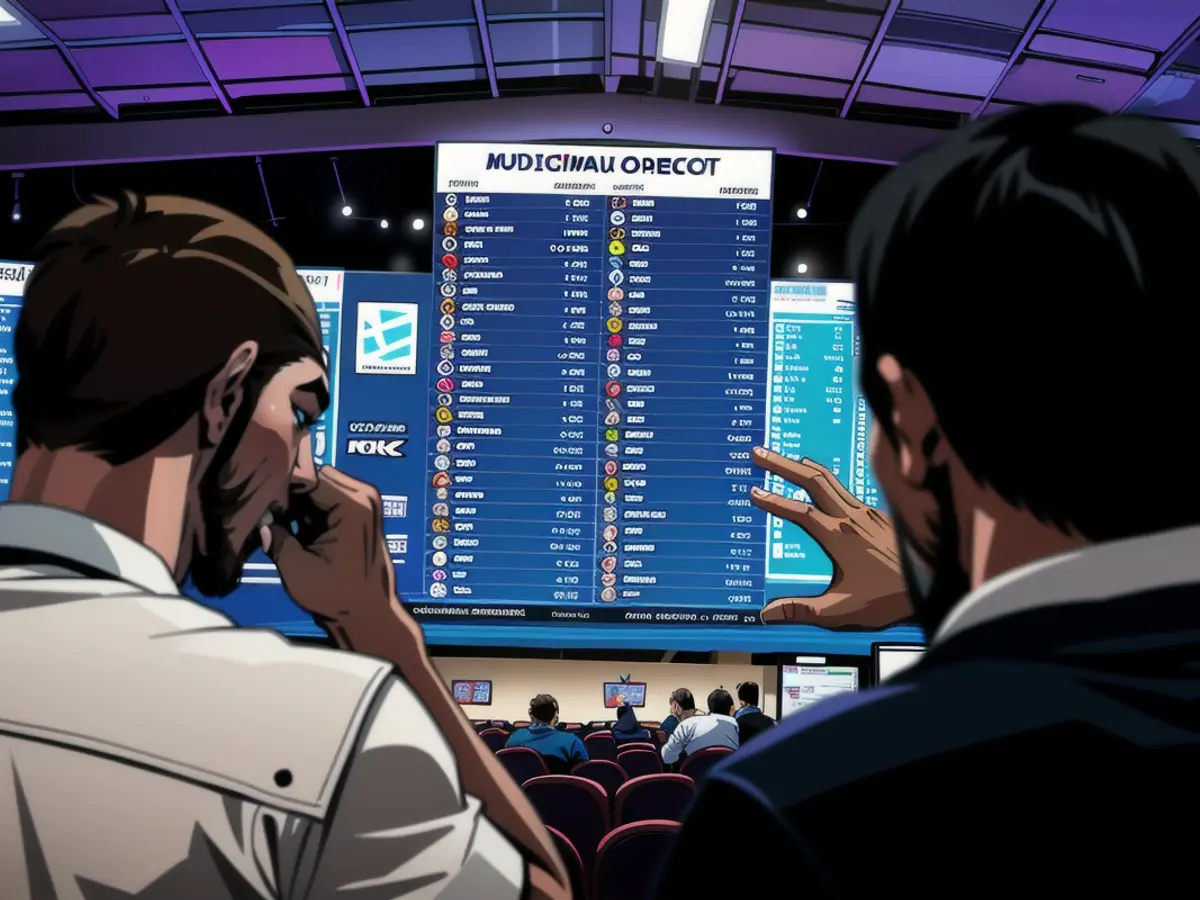Fresh chapter - Coalition forms in South Africa following ANC's election setback.
It seems almost certain that South Africa's ruling party, the African National Congress (ANC), has lost its majority in the latest parliamentary elections. This means more than just a significant defeat for the party once led by Nelson Mandela; for the first time in the country's 30-year democratic history, the ANC won't govern alone. Instead, it'll have to enter into a coalition. The question now is: with whom?
As of now, with around 98% of votes counted, the ANC is projected to have around 40.11% of the total, a substantial drop from the 57.5% it received in 2019. This challenge to the ANC's political power has never before been wavered, as it's been the party in control since the end of apartheid in 1994. With the official announcement of the results by the Electoral Commission (IEC), new parliamentarians must form a government and elect a president within 14 days.
There are two potential coalition partners: the economically liberal Democratic Alliance (DA) and the Marxist-oriented Economic Freedom Fighters (EFF). Though ideologically different from the ANC, the DA has already shown they can cooperate on a provincial level in the Western Cape province, which includes the tourism hot spot Cape Town.
Aleix Montana, a political analyst at risk assessment company Verisk Maplecroft, believes a partnership between the ANC and DA is likely, despite their different political beliefs. This coalition would likely be welcomed by Western partners and foreign investors, according to Montana.
German companies that have a stake in the South African market are both hopeful and concerned about this shift in power, says Christoph Kannengießer, the managing director of the Africa Association. "A loss of the ANC's majority could have opportunities, but also risks for German firms," said Kannengießer, depending on the choice of coalition partner for the ANC.
The other potential coalition candidate is the Marxist-oriented EFF, who support land expropriation and nationalization and currently stand at 9.37% of total votes. Being led by Julius Malema, a former ANC Youth League chairman, the ANC and EFF are more compatible politically. However, a coalition with the EFF could frighten investors, jeopardizing an economy already struggling with high unemployment and stagnation. Furthermore, previous coalitions between the ANC and EFF on municipal level have been unstable.
This coalition decision is particularly important for Germany and Europe. South Africa is the most economically powerful nation in Africa, even with an unstable economy and high levels of unemployment. It plays a crucial role in the international energy transition due to its required resources. It's also a member of the G20 and has strong political and economic connections with Western nations, Russia, and China.
The ANC's loss of power is linked to its lackluster governing record. The nation's population has a lot of grievances, such as rundown state-owned enterprises, frequent power outages, inadequate educational and healthcare systems, and high crime rates. It's also been blamed on the recent founding of the MK party by former president Jacob Zuma, who received 14.8% of the votes. A togetherness with the MK is considered unlikely due to internal disagreements.
Finally, there's no word on who will remain the head of state for the ANC. Deputy secretary-general of the ANC, Momvula Mikonyane, recently confirmed that President Cyril Ramaphosa is not surrendering his position. However, it's uncertain if Ramaphosa will be re-elected, after six years in office and facing challenges due to internal party frictions.
Cyril Ramaphosa was once regarded as a potential savior for the Rainbow Nation, having unseated Zuma. However, critics now label him ineffective, citing his lack of action and subjection to internal party struggles. The DA leader, John Steenhuisen, hailed this loss of the ANC's absolute majority as a victory for South Africa's democracy, even as the specifics of the coalition remain unclear.
Read also:
- Despite the ANC's historical dominance in South Africa, starting from the end of apartheid in 1994 until now, the party has faced a significant election setback, potentially losing its majority for the first time in the country's 30-year democratic era.
- In the context of the recent parliamentary elections, Russia and China, being key international players, will be closely watching the coalition formation process in South Africa, a nation known for its strong political and economic connections with both countries.
- Cyril Ramaphosa, the head of the ANC, has faced criticism for his ineffectiveness in office despite initially being hailed as a potential savior for South Africa, leading to internal party frictions and increasing challenges for his re-election.
- The economically liberal Democratic Alliance (DA) and the Marxist-oriented Economic Freedom Fighters (EFF) are the two main potential coalition partners for the ANC, each offering unique opportunities and risks for German firms with an interest in the South African market.
- South Africa's parliamentary elections have shown the Anti-Apartheid movement's legacy, as the ANC's power shift mirrors the changes that occurred after Nelson Mandela's fight against racial segregation and discrimination.
- In Pretoria, the capital of South Africa, the official announcement of the election results by the Electoral Commission (IEC) will mark the beginning of a new government formation process, which will include electing a new president within 14 days.
- The Western Cape province, a tourism hotspot including Cape Town, has demonstrated unity between the DA and ANC on a provincial level, indicating the potential for future national-level cooperation between the two political parties.








